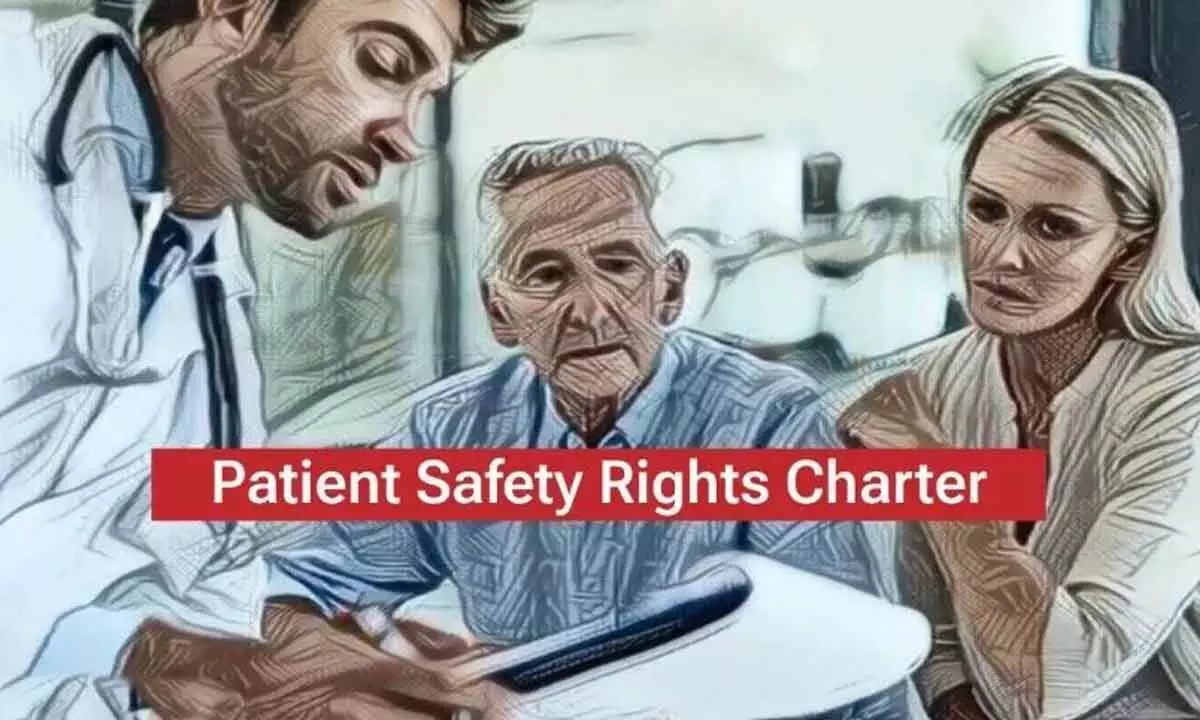WHO launches first ever Patient Safety Rights Charter

Assuring patient safety in health care is a critical component in delivering the right to health. 1 in every 10 patients experience harm in healthcare; about 50% of this harm is preventable. Patient safety can be compromised due to avoidable errors such as unsafe surgical procedures, medication errors, mis- or late diagnosis, poor injection practices, unsafe blood transfusion and the onset of life-threatening infections such as sepsis and other health care-associated infections
The World Health Organisation (WHO) has launched a Patient Safety Rights Charter at the just concluded Global Ministerial Summit on Patient Safety. It is the first Charter to outline patients’ rights in the context of safety, and will support stakeholders in formulating the legislation, policies and guidelines needed to ensure patient safety.
Patient safety refers to the processes, procedures and cultures established in health systems which promote safety and minimise the risk of harm to patients. Everyone has the right to safe health care, as established by international human rights standards, regardless of their age, gender, ethnicity or race, language, religion, disability, socioeconomic status or any other status.
The Charter covers 10 patient safety rights crucial to mitigate risks and prevent inadvertent harm, which includes the right to timely, effective, and appropriate care, the right to safe health care processes and practices, the right to qualified and competent staff and the right to patient and family engagement amongst others.
“Patient safety speaks to the first, fundamental principle of health care – ‘Do no harm’. Assuring patient safety is a global priority, and a critical component needed to achieve the Sustainable Development Goals. Patient safety can be seen as an indicator of countries’ broader commitment to respect, protect and fulfil health-related human rights” said WHO Director of Integrated Health Services, Dr Rudi Eggers.
“Everyone, everywhere, has the right to safety as a patient. The launch of the Charter is a tangible step forward in achieving a safer, more equitable world. The charter will be a key resource in assisting countries in integrating essential concepts such as patient and family engagement, equity, dignity, and access to information into their health care systems. Countries and all stakeholders are invited to adopt, disseminate and implement the Patient Safety Rights Charter” said the Head of Patient Safety Flagship Unit at WHO, Dr Neelam Dhingra.
Assuring patient safety in health care is a critical component in delivering the right to health. 1 in every 10 patients experience harm in healthcare; about 50% of this harm is preventable. Patient safety can be compromised due to avoidable errors such as unsafe surgical procedures, medication errors, mis- or late diagnosis, poor injection practices, unsafe blood transfusion and the onset of life-threatening infections such as sepsis and other health care-associated infections.
Patient harm in health care is a global challenge. It occurs in countries of all income settings and at all levels of healthcare delivery. Harm to patients rarely results from a single incident, but due to process failures because of poorly designed health systems.
Improving patient safety through systemic and systematic action is a global priority identified in the World Health Assembly resolution 72.6 - Global action on patient safety and the Global Patient Safety Action plan 2021-2030.
The Charter will provide healthcare workers, healthcare leaders and governments with the tools to build patient-centred healthcare systems, improving patient safety and reducing the risk of harm. Importantly, the charter will provide patients with language to advocate for themselves in healthcare settings, and will facilitate continued collaboration between patients, their families and caregivers, communities and health systems to ensure everyone has access to high-quality safe, health care.
The Sixth Global Ministerial Summit on Patient Safety is hosted by the Government of Chile in Santiago, Chile on 17–18 April 2024. At the Summit, ministers, healthcare leaders and patient advocates will discuss how to bring change and sustain changes in patient safety policies and practices, the challenges and opportunities whilst implementing the Global Patient Safety Action Plan.














